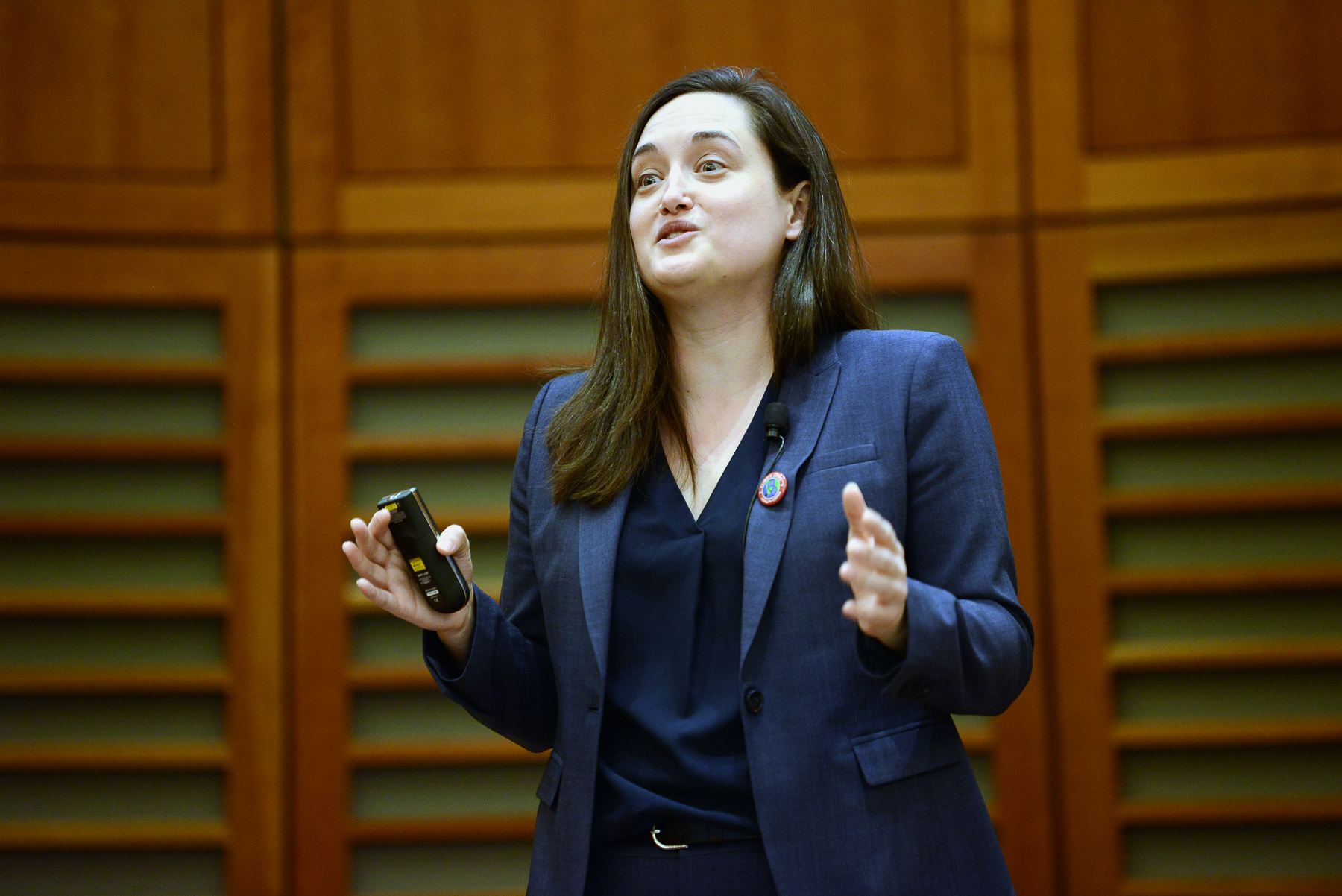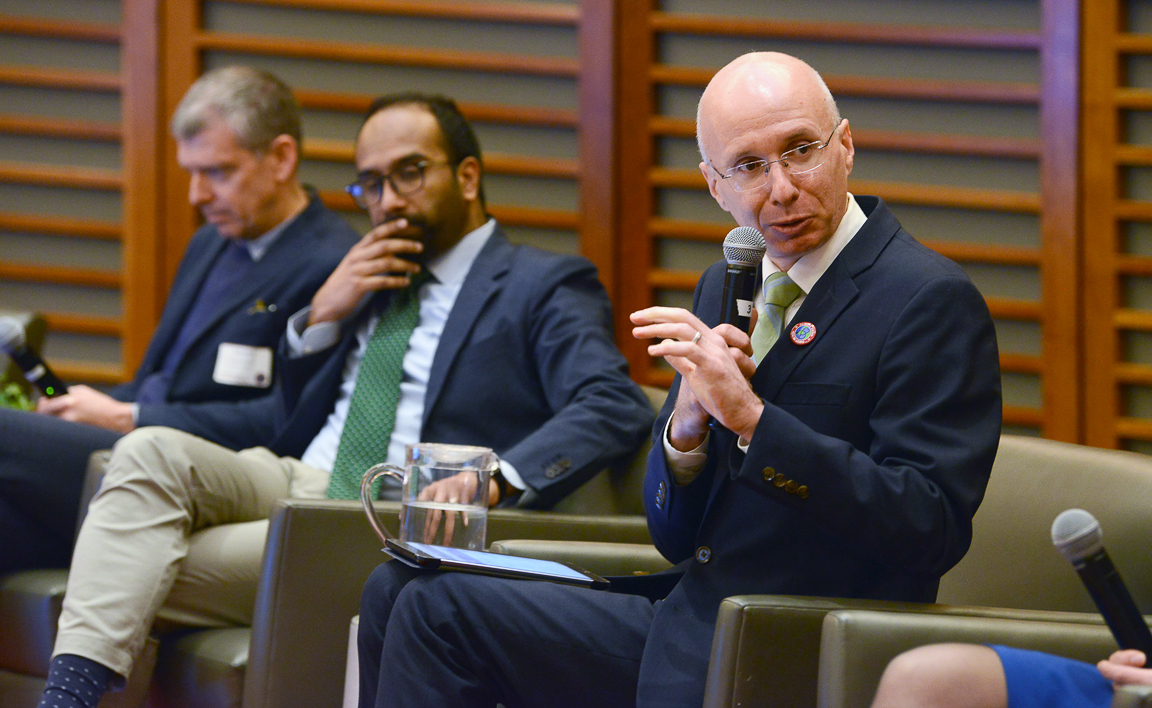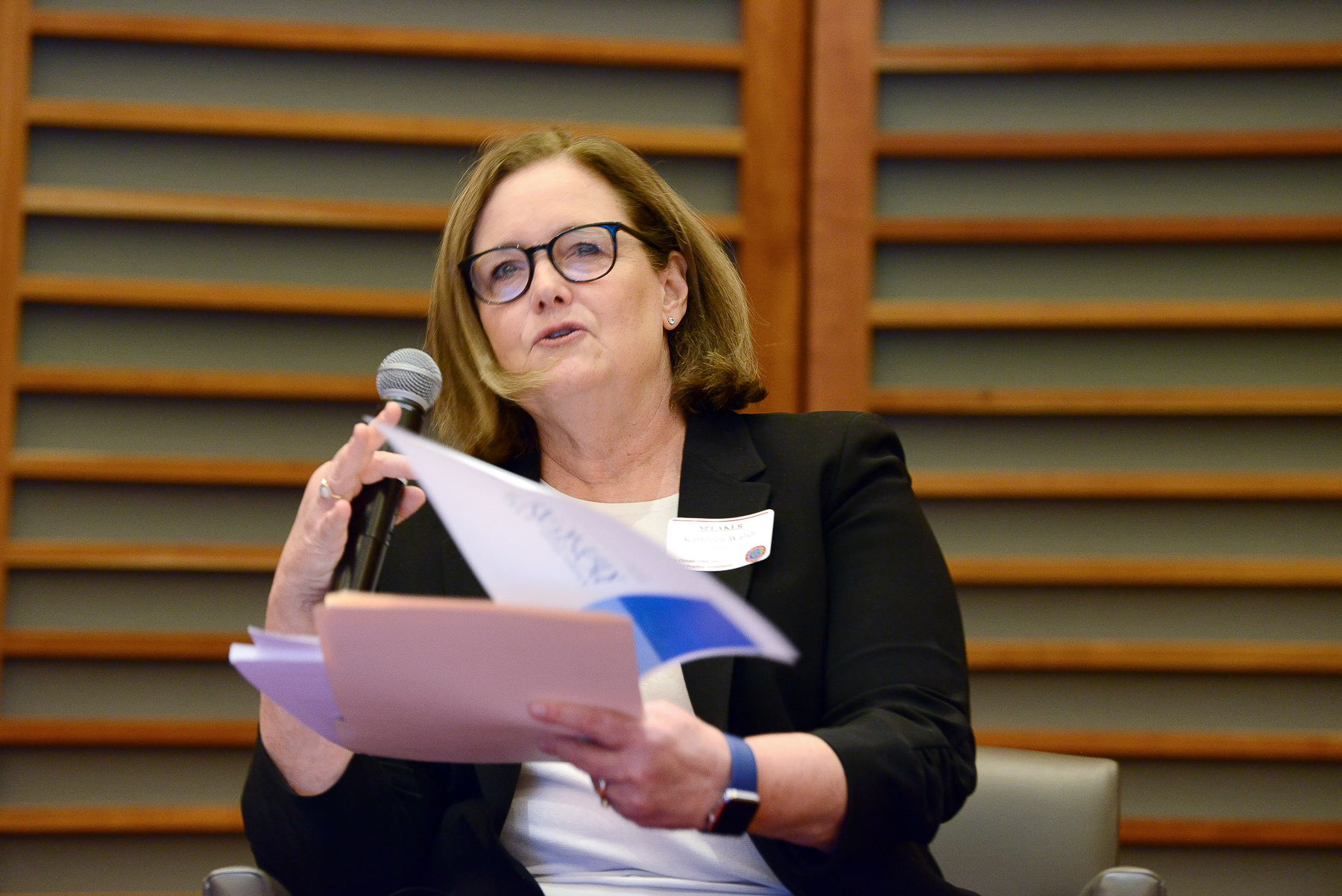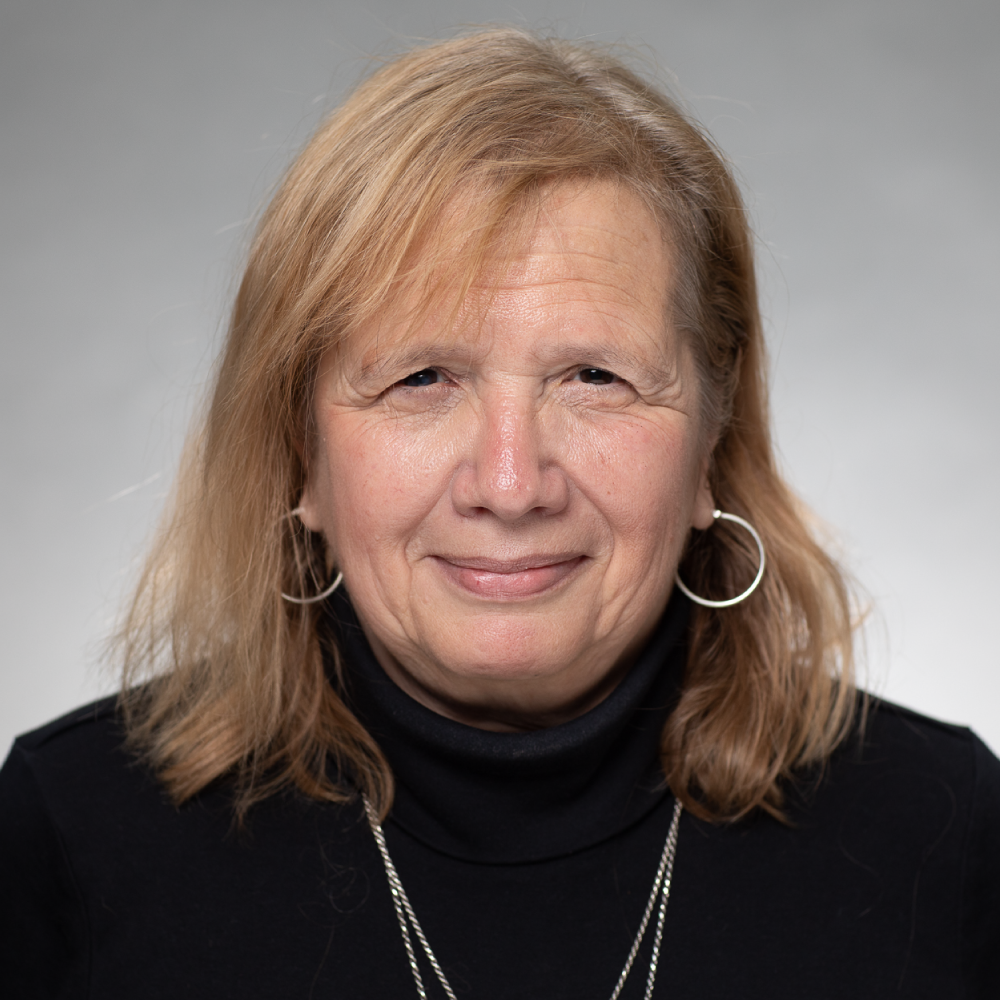Mar 25, 2020
'The biggest opportunity we have to change our lives and protect our children’s future'
The climate crisis has deep implications for the daily medical practice of every physician, clinicians warned at a first-of-its kind symposium of all of Boston’s major teaching hospitals
“We’re in that critical moment,” Dr. Renee N. Salas, an emergency department doctor at Massachusetts Emergency Hospital, told more than 200 clinicians at the Climate Crisis and Clinical Practice Symposium held at Harvard Medical School in February. “What we do now is going to determine our future course.”

The day-long conference was the first of eight symposiums scheduled to be held across the United States and in Australia. The meetings are designed to bring attention to the problems facing the medical field as a result of climate change, and to encourage health care administrators, clinicians and patients to take action and find solutions.
“I consider this a watershed moment in the area of climate change,” said Dr. Aaron Bernstein, a pediatrician at Boston Children’s Hospital and director of the Center for Climate, Health and the Global Environment at Harvard University.
“Change is hard. Small steps are critical.”

Hitting home
Changing weather patterns are already having an impact on medical facilities.
In July, a heat wave forced a Cambridge hospital to move patients to lower floors when rooms got too hot and medical equipment became inoperable. A year earlier, a devastating hurricane wiped out a Puerto Rico manufacturing facility, causing a critical national shortage of saline solution, used in almost all hospital procedures. Drug shortages caused by floods and other natural disasters have become critical and commonplace. So have power outages.
Climate change is not just causing drug shortages and equipment failures. It’s also directly affecting patient health, symposium panelists said.
Raging wildfires in California, Australia, Brazil and other regions have spewed so much pollutants and allergens into the air that people with chronic lung and heart conditions, such as asthma or heart failure, are increasingly showing up in emergency rooms with worsening symptoms. Heat stress caused by rising temperatures has been shown to cause increased heart attacks and strokes, premature labor and mental health issues in patients. Changing weather patterns have brought mosquito-borne illnesses like dengue fever and the Zika virus, once found only in tropical regions, to New England.
And experts predict that new diseases will continue to emerge as a result of climate change and antibiotic resistance.
“The climate crisis is a quintessential metaproblem and threat multiplier, with frighteningly broad health implications, ranging from climate-sensitive waterborne and foodborne illness to worsening mental health,” Salas wrote in the New England Journal of Medicine, a sponsor of the symposium. “It is making it more difficult for all of us in medicine to do our job of preventing harm and improving health, one patient at a time. There is thus a profound and urgent need to implement clinical practice improvements that will safeguard the health of our patients and the resilience of our care delivery system in the face of growing climate-related challenges.”
Next steps
That’s why symposium organizers are bringing the climate change conversation to other medical communities in the United States and Australia.
“There are too many people who believe that climate change is a hoax. We have to change that idea. We have to convince people who cast votes to do something,” said Dr. Nicholas S. Hill, head of the pulmonary, critical care and sleep division at Tufts University School of Medicine.
Some hospitals are tackling their own impact on climate change.
Dr. Kathleen Walsh, president and CEO at Boston Medical Center, said the hospital has reduced its carbon footprint and expects to achieve net zero carbon dioxide emissions by sometime this year. That commitment, along with $5 million in energy savings, has helped the hospital’s campus win the reputation as the “greenest” hospital in the city.
“Every project we did with sustainability in mind,” Walsh told the gathered clinicians, adding that the hospital’s ultimate goal is “to make Boston the healthiest urban population by 2030.”

Symposium organizers are appealing to clinicians in other cities to identify and respond to climate change issues in their own communities and then bring those issues to the attention of hospital administrators.
Clinicians should speak openly about the impact climate change is having on their profession and not just to administrators, Hill said.
“We need to bring this to the bedside,” agree Bernstein, who writes monthly Coverage columns on health and climate change. Patients, he said, need to be informed about ways to take care of their health during extreme climate conditions.
“The time for action is short,” warned Dr. Caren Solomon, deputy editor at New England Journal of Medicine and an associate physician at Brigham and Women's Hospital, who encourages physicians to encourage medical schools to incorporate climate change in their teaching.
“It’s the biggest opportunity we have,” said Gina McCarthy, a professor of public health at Harvard University and former administrator of the federal Environmental Protection Agency, “to change our lives and protect our children’s future.”
Did you find this article informative?
All Coverage content can be reprinted for free.
Read more here.
The “Climate Crisis and Clinical Practice Symposium,” was co-hosted by The Center for Climate, Health, the Global Environment at Harvard T.H. Chan School of Public Health, The Harvard Global Health Institute, Harvard Medical School, and The New England Journal of Medicine.
PHOTOS BY JIM MAHONEY

